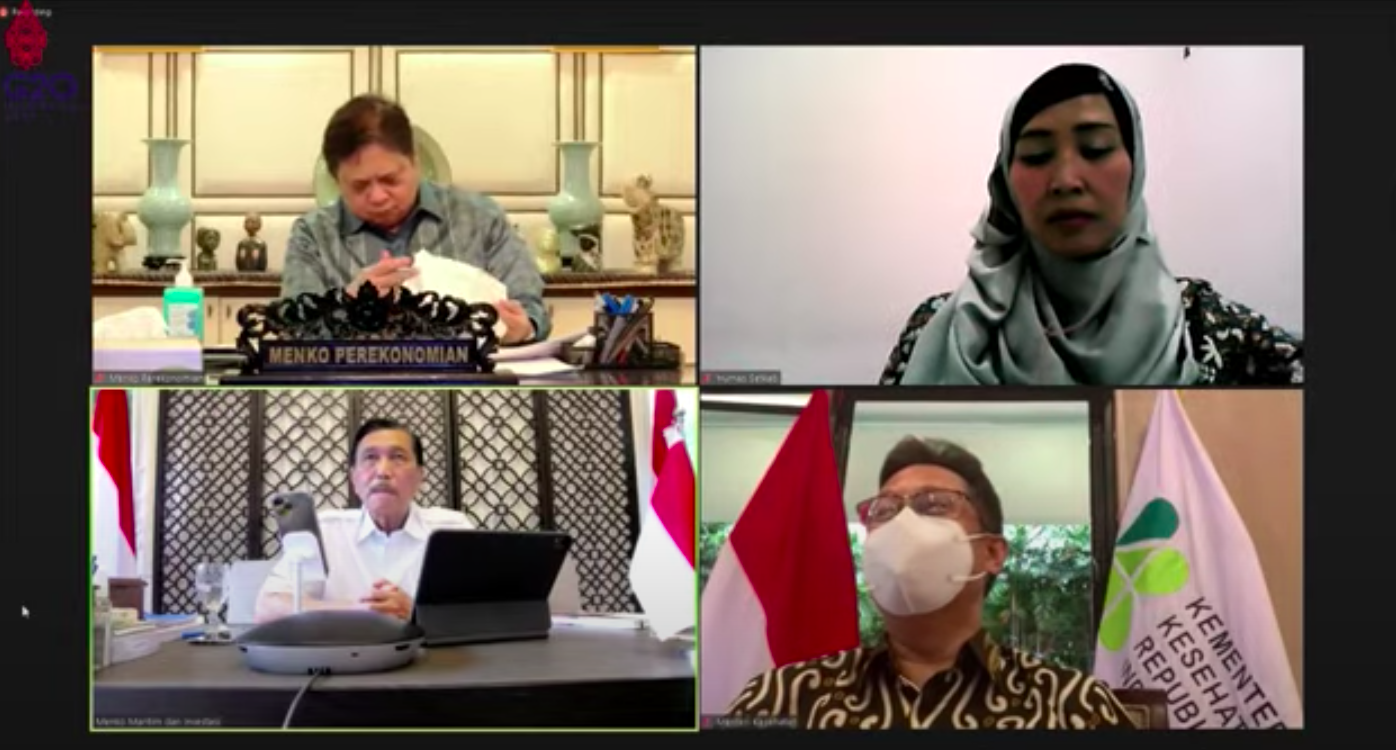Gov’t Sets Second Dose Vaccination Rate as PPKM Level Indicator

Coordinating Minister for Maritime Affairs and Investment Luhut B. Pandjaitan, Coordinating Minister for Economic Affairs Airlangga Hartarto, and Minister of Health Budi Gunadi Sadikin deliver press statement after the limited meeting on PPKM evaluation via video conference, Sunday (02/27). (Photo by: Public Relations/Jay)
The Government has announced that the second dose COVID-19 vaccination rate for the general public and the elderly will be a requirement to lower the level of public activity restrictions (PPKM) in the islands of Java and Bali.
The provisions will be set forth in Instruction of Minister of Home Affairs and it will be effective from March 1, 2022.
“Starting next week, the Government will effectively enforce the requirement of the second dose of vaccination to determine the level of assessment in each region,” Coordinating Minister for Maritime Affairs and Investment Luhut B. Pandjaitan said after the limited meeting on PPKM evaluation via video conference, Sunday (02/27).
The policy, Luhut stated, will increase the number of regions in Level 3 and Level 4 because they cannot meet the said requirement. “However, we estimate that we will see the reverse starting next week,” he said.
The Coordinating Minister further stated that the requirement has also made several regions speed up the second dose of vaccination for the general public and the elderly.
The number of regencies/cities that do not meet the requirement for the general public has also decreased from 21 to 7 regions. As for the elderly, the number has also decreased from 26 to 10 regions.
Luhut also said that the Government will continue to push for policies that will speed up the vaccination rate in order to achieve herd immunity. A high level of herd immunity is one of the important factors in the transition from pandemic to endemic, he added.
He also underscored that the transition must be carried out in stages. The policy of reducing public restrictions must be able to maintain hospitalization and mortality rates at a low level, he said.
“The Government will take various initial steps, including increasing the coverage of the second and also booster vaccination doses; increasing the capacity for active case surveillance and testing-tracing efforts; the assurance of response (capacity) of qualified health facilities,” he said.
All policies in the transition process, Luhut added, cannot be pushed on and can only follow existing trends. This process must also be carried out jointly by all components of the nation.
“Achieving a situation close to normal requires a new perspective on life and conditions. This certainly needs to be prepared by the Government as well as the public. All these efforts need to be accompanied by thorough education so that ‘living with COVID-19’ will not just be a slogan,” he said. (DND/UN) (FI/MUR)








